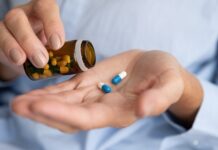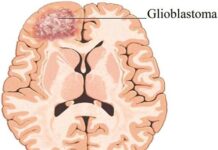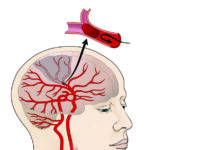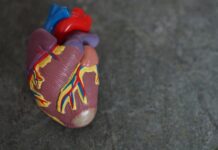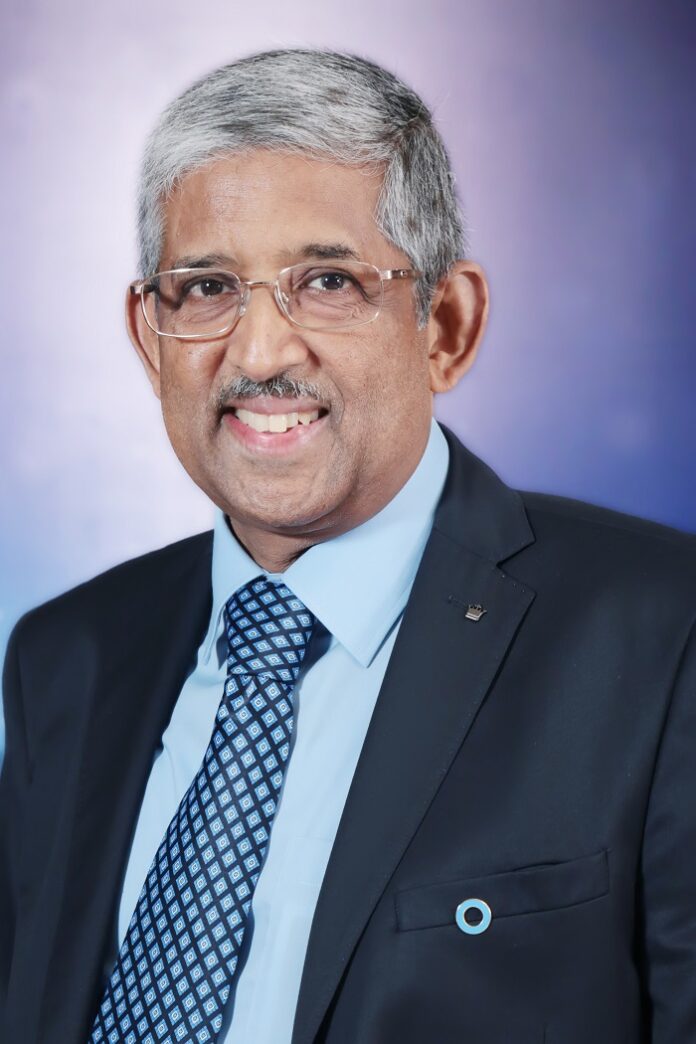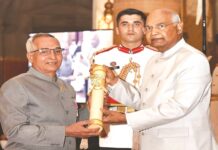12th November is observed as World Diabetes Day. Millions of people all over the world have been grappling with the deadly lifestyle disease. With alarming numbers in India and no foreseeable cure in sight, our country has been placed among those at the top with a large population of people suffering from diabetes. On the occasion, The Indian Practitioner had the chance to interact with Dr V. Mohan, Founder, Chairman and Consultant Diabetologist at Dr Mohan’s Diabetes Specialities Centre, Chennai. Being interested in research from his under-graduate medicine days, after completing his medicine degree from Madras Medical College he joined his father, Prof. M. Viswanathan, founder of the first diabetes clinic in India which was established in 1948. Dr Mohan has won several accolades, including the prestigious Dr. B.C. Roy National Award by the Medical Council of India. He was also conferred the Dr. Harold Rifkin Award by the American Diabetes Association, as well as a Padma Shri by the Govt. of India in 2012 for his contributions to the field of diabetes. He is also the President of the Madras Diabetes Research Foundation which is Asia’s largest stand-alone diabetes research centre.
Excerpts from the interview:
- Yours is one of the first hospitals in India to specialize in diabetes treatment. What is interesting is that you thought of making diabetes a speciality illness area in the 1950s when diabetes wasn’t at epidemic proportions as it is now. How did you have the premonition then that diabetes would become a widespread health issue in India as it is now?
Ans: I would like to set the records straight. My father Prof. M. Viswanathan is fondly referred to as the ‘Father of Diabetology’ in India. He started the first diabetes clinic in India at the Government Stanley Hospital in 1948 and this is the first diabetes clinic in the post independent India. My father continued to run the diabetes clinic until around 1970, when he had to leave Stanley. He then requested me to take up medicine, so that I could help him to continue his work on diabetes, in the private sector. I accordingly joined the Madras Medical College in the year 1971. Right from that time, I started working with my father in the field of diabetes. It was also in 1971 that his hospital was converted into a diabetes hospital. In 1991, after working with him for 20 years, my wife Dr.Rema and I established Dr. Mohan’s Diabetes Specialities Centre, which has since grown to become one of the largest chain of diabetes centres in the world, with 50 branches in 32 cities in 8 states of India. We have also registered 540,000 patients with diabetes in our electronic records, which is one of the largest in the world. So, actually it was my father’s vision which led to diabetes becoming a speciality in India and full credit to him for thinking of this in 1948 itself, when diabetes was hardly a problem in India.
- In the allopathic line of treatment what we have seen is that patients are started with primary medications (tablets), then they graduate to stronger tablets, followed by insulin, etc, which means that diabetes only aggravates. Only when the illness is detected in the initial stages, medications keep it in check/control. What are your observations on this?
Ans: The statement is only partly true. If lifestyle modifications, i.e., diet and exercise, are very strictly followed, there are many patients who are able to go off all medications and even achieve a remission of diabetes. However, very often, due to lack of adherence to lifestyle, the pancreatic beta cell function starts deteriorating and then they need more medicines and ultimately need insulin for control. It is also true that in most cases diabetes is a progressive condition and with age also the pancreatic beta cell function goes down. Hence, one cannot generalize and make sweeping statements as each patient is different and we have different experiences with different patients. Ultimately, it all comes down to how seriously they take their condition and manage it.
- Alternative systems of medicine like Ayurveda, Unani, Naturopathy speak of treating diabetes more effectively than via the allopathic route. These systems even claim to cure diabetes by rejuvenating the pancreatic cells that facilitate insulin production. Could an integrative approach of medicine be more beneficial in diabetes therapies?
Ans: I do not agree that the alternative systems of medicines like Ayurveda, Unani and Naturopathy are more effective than allopathic medicines. This is a hype which has been popularised for some time now by adherents of other systems of medicine. No one should talk about a cure for diabetes casually or about rejuvenating the pancreatic cells, as there is absolutely no scientific proof for this. However, having said that, an integrative approach of medicine is definitely beneficial. Thus, following a healthy diet, adequate exercise, enough rest and sleep, and adding yoga and pranayama will definitely help to heal the body. All these are already part of our treatment methods.
- Companies have launched fixed-dose combination (FDC) drugs for diabetes, such as an FDC comprising Remogliflozin + Vildagliptin + Metformin. Are such FDCs more effective as compared to conventionally administered combination drugs? With expensive drugs circulating the markets, could FDCs prove to be a cost-efficient method of managing diabetes through allopathy?
Ans: India has been a pioneer in fixed-dose combination drugs for diabetes for several decades now. There are many FDC drugs in India and the one you have mentioned is one such FDC. The advantage of FDCs is that they improve the compliance to treatment, as patients do not like to take too many pills. Generally, the FDCs are also less expensive
- What are some of the latest advances in the treatment/ management of diabetes?
Ans: There are latest advances in relation to oral drug treatment where, we now have medicines which not only reduce the sugar, but also reduce the weight, blood pressure and are also beneficial for the heart and for the kidney, apart from being very good anti diabetic drugs.
In the case of insulin, we are getting better and longer acting insulins with less chances of hypoglycaemia or weight gain. Once, weekly insulin is also likely to be launched soon.
Finally, in the area of glucose monitoring, continuous glucose monitoring or CGM have come to stay. They help to monitor the blood sugars throughout the day. Every year we are seeing better and better advances coming in the management of diabetes.
- Pharma companies have been conducting research on developing oral insulin. Any idea whether any breakthrough can be expected in this area? If oral delivery of insulin were to become a reality, to what extent would it help
Ans: Research on oral insulin has been going on for many years now and some companies even completed the clinical trials. The challenge is that, when insulin is consumed as the pill, it tends to get destroyed in the stomach. Hence, we have to give very large doses of oral insulin to compensate for this loss. This makes it extremely expensive and non-viable in the long run. Hence, most companies have shelved the oral insulin project for now. If oral insulin becomes a reality, it would definitely be beneficial to patients and I hope research on this continues.
- Recently, there has been a surge in the number of diabetics post the Covid-19 pandemic. The rise is said to have been triggered by the infection or while the patient was suffering from the infection. Is there any association between diabetes and Covid-19? If there is, what could be the reason?
Ans: The increase in number of cases of diabetes, post the Covid pandemic is due to several reasons.
- The stress and anxiety related to the pandemic.
- The lockdown which resulted in less physical activity and alterations in diet, which led to obesity, which is a major trigger for diabetes.
- The use of steroids during severe Covid stage, led to a dramatic increase in the blood sugar levels and triggering of diabetes in those with pre-diabetes.
- There is a view, that the novel SARS COV 2 virus can directly attack the pancreatic beta cells and produce diabetes. The evidence for this however, is weak.
- What are some of the factors that make people more vulnerable to diabetes? How can the wildfire kind of diabetes spreading in India be checkmated? What steps are required from various stakeholders and from the common people to tackle the disease?
Ans: The factors which make people vulnerable to diabetes are increase in obesity rates and less physical activity. Mental stress and unhealthy eating habits also trigger it. The epidemic is caused mainly due to unhealthy eating habits, junk foods, lack of enough sleep and sedentary behaviour.
If all stakeholders come together and increase awareness among the people about the need to maintain ideal body weight to avoid junk foods and to eat healthy, nutritious food would help tremendously. A healthy diet includes plenty of green leafy vegetables, some fruit, adequate proteins, (preferably in the form of vegetable protein like bengal gram, green gram, rajma, back gram, paneer, mushroom etc.) and finally, reduce the amount of carbohydrates whether it is rice or wheat. This can have a significant effect in reducing, or at least blunting, the rapid increase of diabetes in India.






